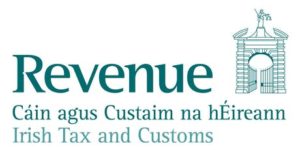PAYE Modernisation for Employees
Overview
PAYE Modernisation is the new Revenue PAYE Reporting System, which will go live on the 1st January 2019. To date Revenue, advise the new system will apply to all employers without exception.
Essentially PAYE Modernisation is a “Real Time Payroll Reporting” System. The employer will calculate and report to the Revenue their employees pay and tax deductions prior to each pay date
SMART PAYE outlines the benefits of PAYE modernisation for employees, employers and for Revenue.
The benefits for Employees:
• the ability to maximise the use of your entitlements
• the availability of real time accurate data through our online systems
• clear information about the deductions being reported to Revenue on your behalf
How will this affect your pay?
There will be no change to how your employer pays you. They will still provide you with a pay slip and deduct:
• Income Tax
• Universal Social Charge
• Pay Related Social Insurance
• Local Property Tax (as required).
However, your employer will now use a Revenue Payroll Notification when calculating your pay and deductions. They will also have to report these deductions to Revenue every time you are paid.
From mid-2019, you will be able to view pay and deductions reported by your employer to Revenue on myAccount. When you sign in to myAccount, you can check the:
• latest information sent to us
• correct details are being reported.
•
Your 2018 P60 is the last P60 you will receive from your employer.
In 2019, Revenue will issue you with an End of Year Statement.
Changes when you start and leave a job
From 1 January 2019, you will no longer receive a P45.
What will happen when I start a new job?
Your new employer will notify Revenue of your start date, this will:
• create a new employment record with Revenue
• allow your employer access to up-to-date credits and rate bands for you.
If it is your first job in Ireland, you must register it through ‘Jobs and Pensions’ in myAccount.
What will happen when I leave a job?
Your employer will not give you a P45. They will enter your leaving date when submitting details of your final pay and deductions to Revenue.
Note:
The Department of Employment Affairs and Social Protection will no longer require a P45 for claims.
What effect will this have on emergency tax?
Your employer is obliged to operate emergency tax when they do not receive a Revenue Payroll Notification (RPN).
Your employer will not receive an RPN:
• when you have not given them your Personal Public Service Number (PPSN)
• if you are not registered for Pay As You Earn (PAYE).
You will automatically be registered for PAYE when you register a job or pension using the ‘Jobs and Pensions’ service in myAccount.
Emergency tax rates from 1 January 2019
When you have not given your employer your PPSN
Your income will be taxed at the higher tax rate (40%).
When your employer does not have an RPN
You may give your employer your PPSN, but if you are not registered for PAYE your employer will not receive an RPN.
In this situation you will receive a single person’s rate band for the first four weeks. This means that in the first four weeks your weekly income:
• up to €665 will be taxed at the standard rate of tax (20%)
• over €665 will be taxed at the higher rate (40%).
After four weeks your total income will be taxed at 40%.
Example 1
Peter starts new in new employment on Feb 1st 2019, earning €800 per week. It is his first job in Ireland and he has not yet received his PPSN (Personal Public Service Number)
As Peter did not give his PPSN to his employer his is taxed on the emergency basis. His income will be will be taxed at the higher rate of (40%)
Peters’s weekly tax is calculated as:
Higher Tax Rates €800 @40% = PAYE Deduction of €320.00
Example 2
Mary starts new in new employment on June 1st 2019, earning €700 per week. She provides her employer with her PPSN, but her employer does not receive an a RPN(Revenue Payroll Notification)
As her employer does not receive an RPN, she is taxed on the emergency basis.
Emergency tax calculation in Week 1 to Week 4
Standard Rate of Tax €665@20% = PAYE Deduction of €133.00
Higher Tax Rate €35 (€700-€665) @40% = PAYE Deduction of €14.00
Total PAYE Deduction €147.00
After Week 4, all of Mary’s income will be taxed at the higher basic
Emergency Tax Week in week 5 onwards
Higher Tax Rates €700 @40% = PAYE Deduction of €280.00
Emergency USC
The emergency rate of Universal Social Charge (USC) is a flat percentage rate (8% in 2018) applied to all income.
End of year statement
Your 2018 P60 is the last P60 you will receive from your employer.
From 2019, an end of year statement will be available to you in myAccount. This will include details of all your pay and deductions from all employments for that tax year.
If you are unable to use myAccount, you will be able to request a paper version of the statement.
For further information please visit www.revenue.ie for further information.


